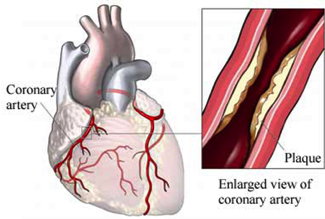CT (Computed Tomography)
A CT (Computed Tomography) scan is a painless test that uses X-rays and a special X-ray machine to take cross-sectional images, showing ‘slices’ of the part of the body that your doctor has asked to be investigated.
The CT scanner looks like a large ring or doughnut with a narrow table in the middle for you to lie on. The Cross Radiology uses the Canon Aquilion Prime.
Your doctor may refer you for a CT if they feel that this test would be the most useful to identify the site and cause of your symptoms.
Preparation
You will be given instructions on how to prepare for your CT scan when making your appointment. Some studies require special preparation.
Upon Arrival
You may need to complete a consent form before the scan, in regards to your medical history and allergies. For some scans you will be asked to change into a gown. You may also be asked to remove your hairclips, earrings, pins, chains or other items of jewellery before the examination, as these can sometimes interfere with the CT scan.
Pregnant?
You may need to complete a consent form before the scan, in regards to your medical history and allergies. It is important that you tell your own doctor and staff at the radiology facility where you are having the CT if there is any chance you might be pregnant. This is important information, as it will make a difference in the way the CT is carried out or a different test altogether might be required. Your safety and that of your unborn child is the number one priority.
During the Scan
For the scan, you should remain as still as possible and follow breathing instructions. You may need to have contrast injected into a vein in your arm to highlight the area being studied (see Iodinated contrast fact sheet). The whole test usually takes 10 to 20 minutes.
Results
Our experienced radiologist looks at the images and sends the results to your treating doctor. You need to discuss the results with your treating doctor.
Risks
The dose of radiation used in a CT scan is generally small and rarely produces harmful effects. If you have many CT scans, there is a slight increase in the lifetime risk of cancer. The small potential risk is balanced against the benefits of picking up serious injury or disease. The radiation dose will be kept as low as possible, especially if you are pregnant or very young. If you had the contrast, there is also some risk related to this (see Iodinated contrast consumer information sheet).
Computed Tomography Coronary Angiogram
Angiography is the X-ray imaging of blood vessels using contrast agents injected into the bloodstream through a thin plastic tube (catheter) that is placed directly in the blood vessel. The images taken are called angiograms. Angiography provides information about blood vessel abnormalities, such as narrowing, blockage, inflammation, abnormal widening and bleeding, using a liquid contrast agent.
CTCA uses computed tomography (CT) scanning to take pictures or images (angiograms) of the coronary arteries of the beating heart.
Purpose
This test helps determine if plaque buildup has narrowed a patient’s coronary arteries, the blood vessels that supply the heart.
Plaque is made of various substances circulating in the blood, such as fat, cholesterol and calcium that deposit along the inner lining of the arteries. Plaque, which builds up over time, can reduce or in some cases completely block blood flow.

Preparation
As contrast material (dye) is used in this procedure, you will be required to fast for 4 hours before the test (however you should keep drinking water).
You will either be assessed by your treating doctor or our Radiologist (this may occur on a different day prior to your appointment). On the night before and the morning of the exam, you may be asked to take a beta blocker medication to lower your heart rate to optimize the quality of the exam.
On the day before and day of your exam, you may be asked to avoid:
- Diet pills and caffeinated drinks such as coffee, tea, energy drinks or sodas. These may increase heart rate and limit the ability of the exam to evaluate for plaque in the coronary arteries.
- Viagra or any similar medication. They are not compatible with the medications you will receive during the procedure.
- Strenuous exercise in the 24 hours prior to your scan.
You will either be assessed by your treating doctor or our Radiologist (this may occur on a different day prior to your appointment). On the night before and the morning of the exam, you may be asked to take a beta blocker medication to lower your heart rate to optimize the quality of the exam.
On the day before and day of your exam, you may be asked to avoid:
- Diet pills and caffeinated drinks such as coffee, tea, energy drinks or sodas. These may increase heart rate and limit the ability of the exam to evaluate for plaque in the coronary arteries.
- Viagra or any similar medication. They are not compatible with the medications you will receive during the procedure.
- Strenuous exercise in the 24 hours prior to your scan.
Upon Arrival
You will need to complete a consent form before the scan, in regards to your medical history, allergies, if you are or think you may be pregnant.
To achieve the highest quality and accurate scan, we require the heart rate to be slower than 60 beats per minute. If your heart rate is still too fast upon arrival, more Beta-blocker medication may be required to slow down the heart rate. It generally requires at least one hour to take effect. Your heart rate will be monitored periodically.
To achieve the highest quality and accurate scan, we require the heart rate to be slower than 60 beats per minute. If your heart rate is still too fast upon arrival, more Beta-blocker medication may be required to slow down the heart rate. It generally requires at least one hour to take effect. Your heart rate will be monitored periodically.
Pregnant?
You may need to complete a consent form before the scan, in regards to your medical history and allergies. It is important that you tell your own doctor and staff at the radiology facility where you are having the CT if there is any chance you might be pregnant. This is important information, as it will make a difference in the way the CT is carried out or a different test altogether might be required. Your safety and that of your unborn child is the number one priority.
During the Scan
For the scan, you should remain as still as possible and follow breathing instructions. You will receive contrast injection into a vein in your arm to highlight the area being studied (see Iodinated contrast fact sheet). The whole test usually takes 10 to 20 minutes.
Results
Your images will be analysed by our Level B accredited (senior level) Radiologist and/or by a Cardiologist. A detail report will be delivered to your referring doctor. You should not have any issues after your test. You need to discuss the results with your treating doctor.
As there are typically over 500 images in each scan, there is a lengthy after-scan processing required. We endeavor to keep our turnaround time (from the time of the scan to the report being delivered) within 48 hours of your scan. Please inform our clerical staff to arrange appropriate measures if urgent report is necessary.
As there are typically over 500 images in each scan, there is a lengthy after-scan processing required. We endeavor to keep our turnaround time (from the time of the scan to the report being delivered) within 48 hours of your scan. Please inform our clerical staff to arrange appropriate measures if urgent report is necessary.
Risks
The dose of radiation used in a CT scan is generally small and rarely produces harmful effects. If you have many CT scans, there is a slight increase in the lifetime risk of cancer. The small potential risk is balanced against the benefits of picking up serious heart disease. The radiation dose will be kept as low as possible. There is also some risk related to contrast (see Iodinated contrast consumer information sheet).



